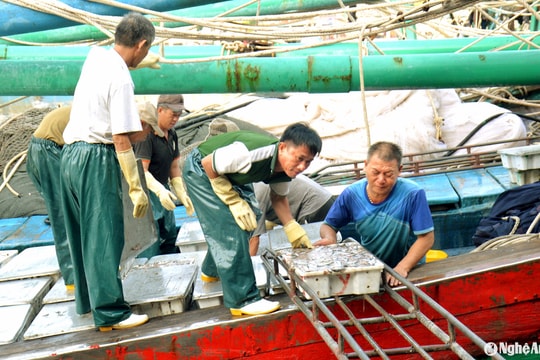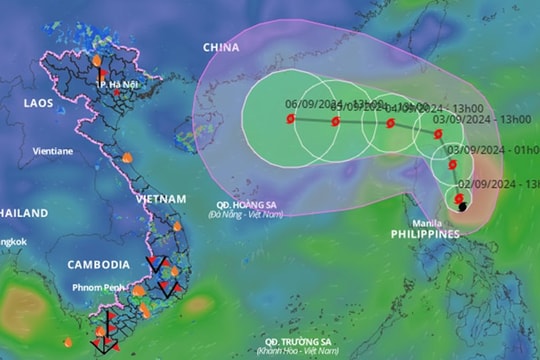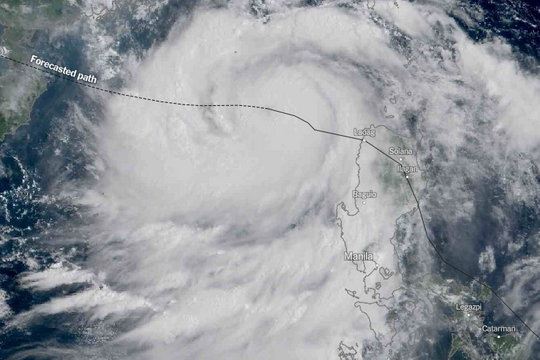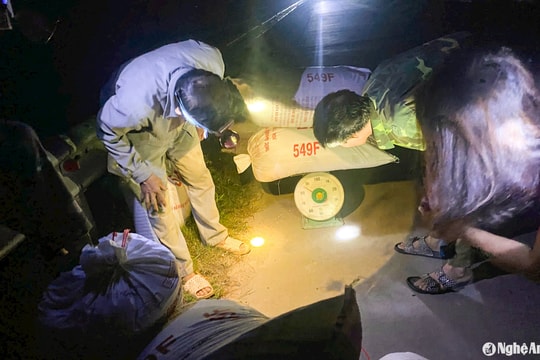Nghe An farmers proactively protect aquaculture products from super typhoon Yagi
According to forecasts, super typhoon Yagi will cause heavy rain over a large area, Nghe An farmers proactively take measures to protect aquaculture areas.
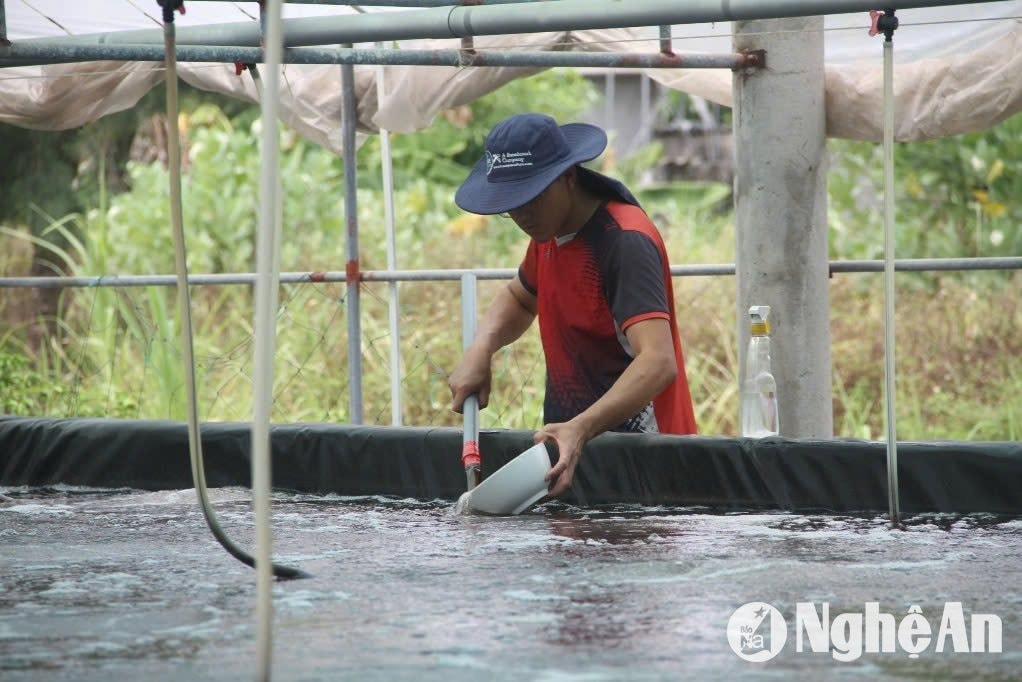
Having raised shrimp for nearly 20 years, Mr. Nguyen Cuong in Dien Trung commune (Dien Chau) said that heavy rains have the biggest impact on shrimp because of shock to the water environment. Therefore, when he heard that super typhoon Yagi would enter Vietnam and cause widespread heavy rains, he prepared response plans.
For the past 2 days, workers have been mobilized to support the greenhouse, cover nets, and bottom lining. At the same time, CaCO bags are placed.3around the pond bank so that when it rains, CaCO will dissolve3before flowing into the pond, helping to maintain pH, hardness and dissolved ions.
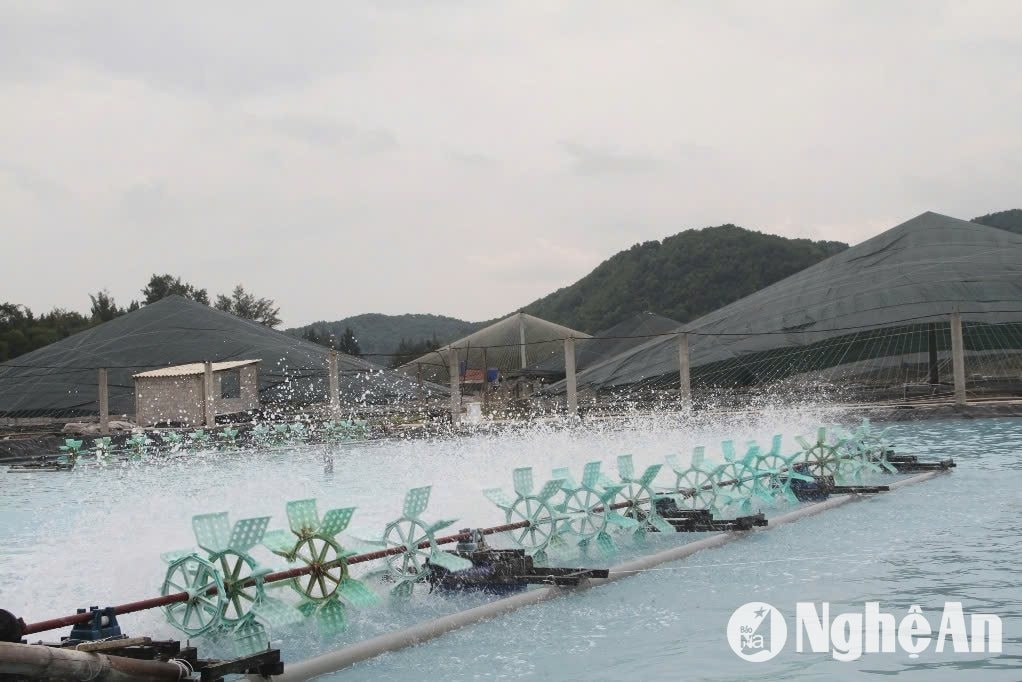
“Shrimp farming, whether hot or rainy, will have a negative impact on the growth of shrimp. Therefore, we must always be proactive in preventing and dealing with problems when they arise; assign workers to stay at the farm, prepare pumps, aeration systems, water fans, generators, etc. so that when problems arise, they can be handled promptly.”
Mr. Hoang Xuan Tin's family in Quynh Bang commune (Quynh Luu) raises 6 shrimp ponds that are about to be harvested. Anticipating heavy rains, rising water levels and power outages due to storms, he proactively came up with response plans.
Mr. Tin said: “The acid content in rainwater is high, the salinity and pH in the water will suddenly decrease. If there are no timely treatment measures, it will lead to the risk of shrimp being shocked by the environment. If it is mild, it will cause the shrimp to eat less, if it is severe, they will stop eating and die.
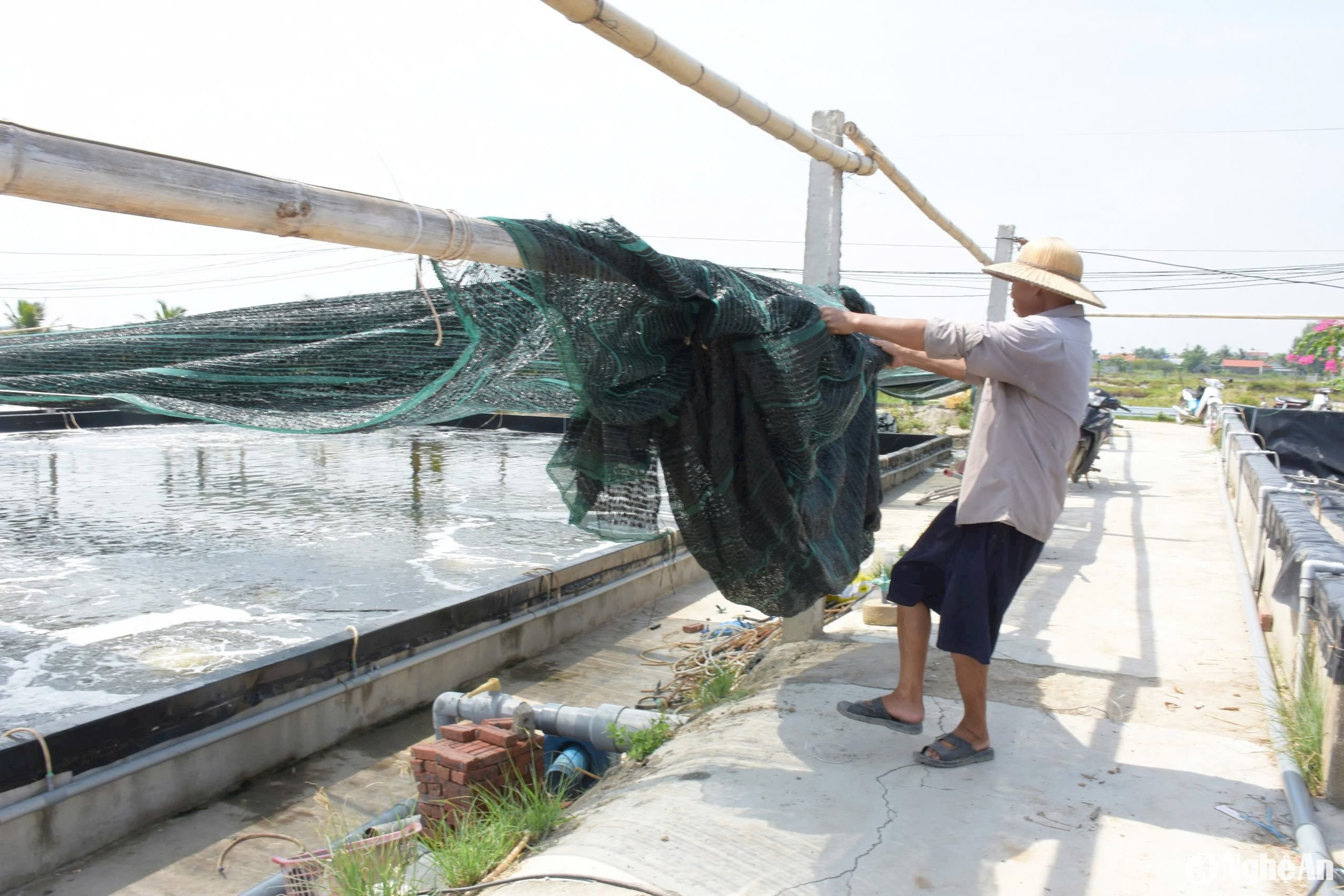
Therefore, I always monitor weather forecasts, anticipate events, import lime powder and minerals to treat water sources; buy generators to operate aeration in case of power outages so that shrimp do not lack oxygen."
The whole province has about 2,300 hectares of shrimp farming, concentrated in the districts of Nghi Loc, Dien Chau, Quynh Luu, and Hoang Mai town. At this time, intensive shrimp farming households are also urgently implementing measures to protect shrimp from the effects of heavy rain.
Accordingly, local authorities and specialized agencies have disseminated and instructed shrimp farmers to handle factors affecting aquaculture during the rainy and stormy season. At the same time, farmers are advised to quickly harvest shrimp that have reached the required weight.
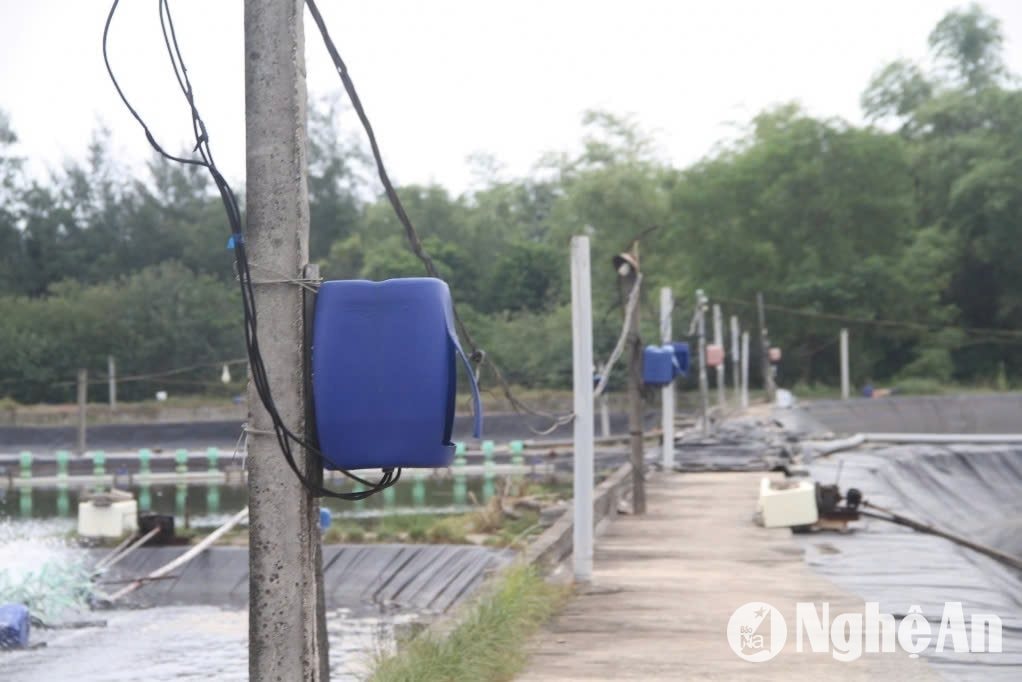
For newly released shrimp areas that are not yet ready for harvest, farmers need to follow the correct procedures for care, disease prevention and control during the rainy season; closely follow the developments of storms and floods, proactively prepare materials to be ready to respond to unusual incidents caused by storms and floods.
Faced with increasingly erratic climate and weather conditions, since the beginning of August, fish cage farmers in Nghi Thiet, Nghi Quang (Nghi Loc), Nghi Tan, Nghi Thuy (Cua Lo Town) and on rivers, lakes and dams have been checking nets and reinforcing fish cages. Because if a storm hits, heavy rains and sudden floodwaters will cause fish cages to break. Therefore, proactively repairing fish cages and securing them is essential.
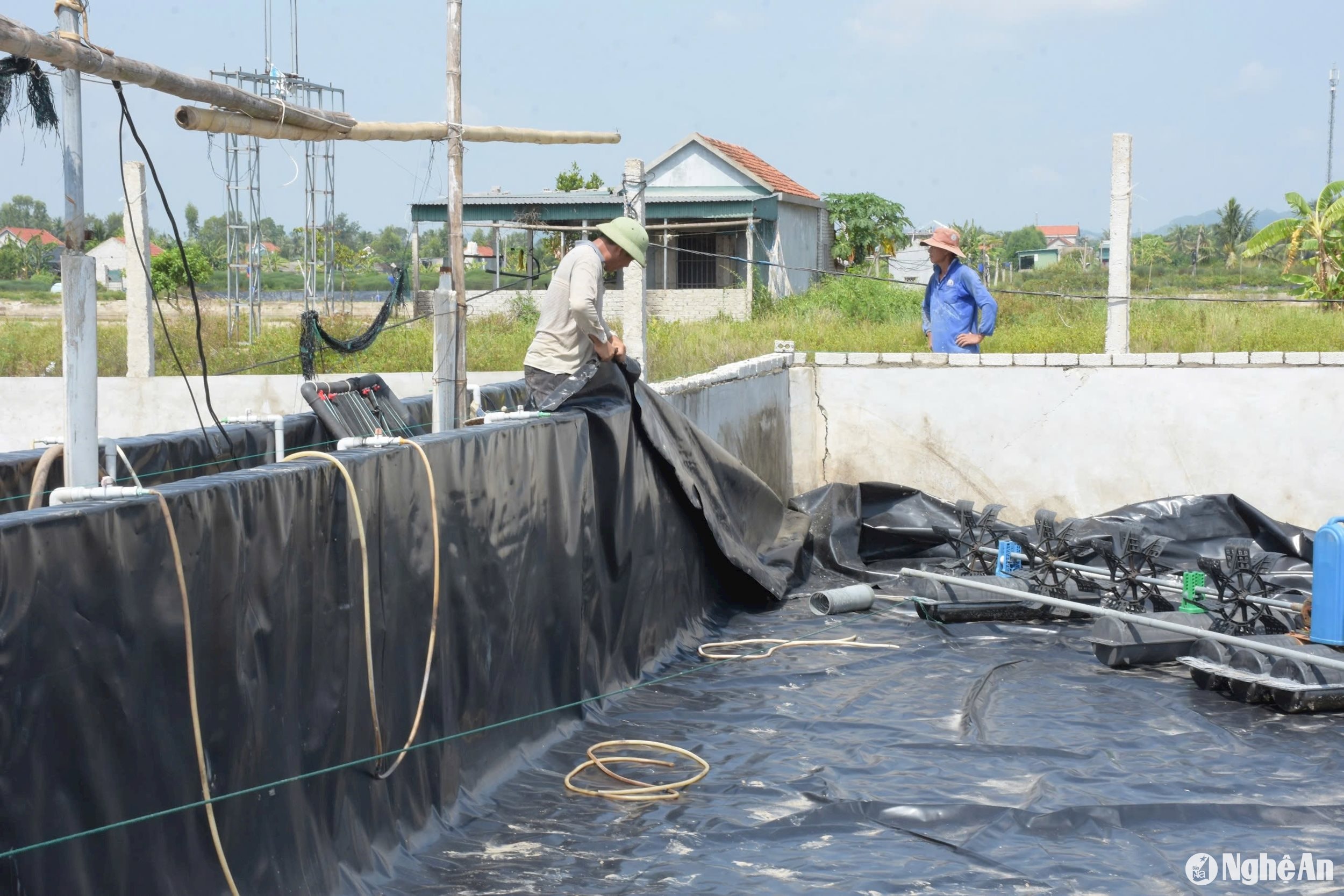
In addition, households also take some measures to protect fish during the rainy and stormy season such as: reducing the number of fish in cages to half of the previous amount to limit fish collisions causing scratches on their bodies; leaving the first 2-3 cages empty to block the water to reduce the pressure of strong water flow into the fish cages behind, making the fish susceptible to water shock. At the same time, using nets to cover the cages to avoid erratic alternating rain and sun weather affecting the health of the fish.
Mr. Luong Van Thuong - Deputy Secretary of the Party Committee of Dong Van Commune (Que Phong) said: "On the Hua Na hydroelectric reservoir, there are nearly 100 households participating in fish farming in cages with more than 600 fish cages. Previously, people raised fish in temporary bamboo cages, so when the wind was strong, the damage was very large. From 2017 to now, 100% of the cages have been replaced with HDPE plastic cages, which are able to withstand natural disasters, heavy rains, and strong winds, thus minimizing damage.
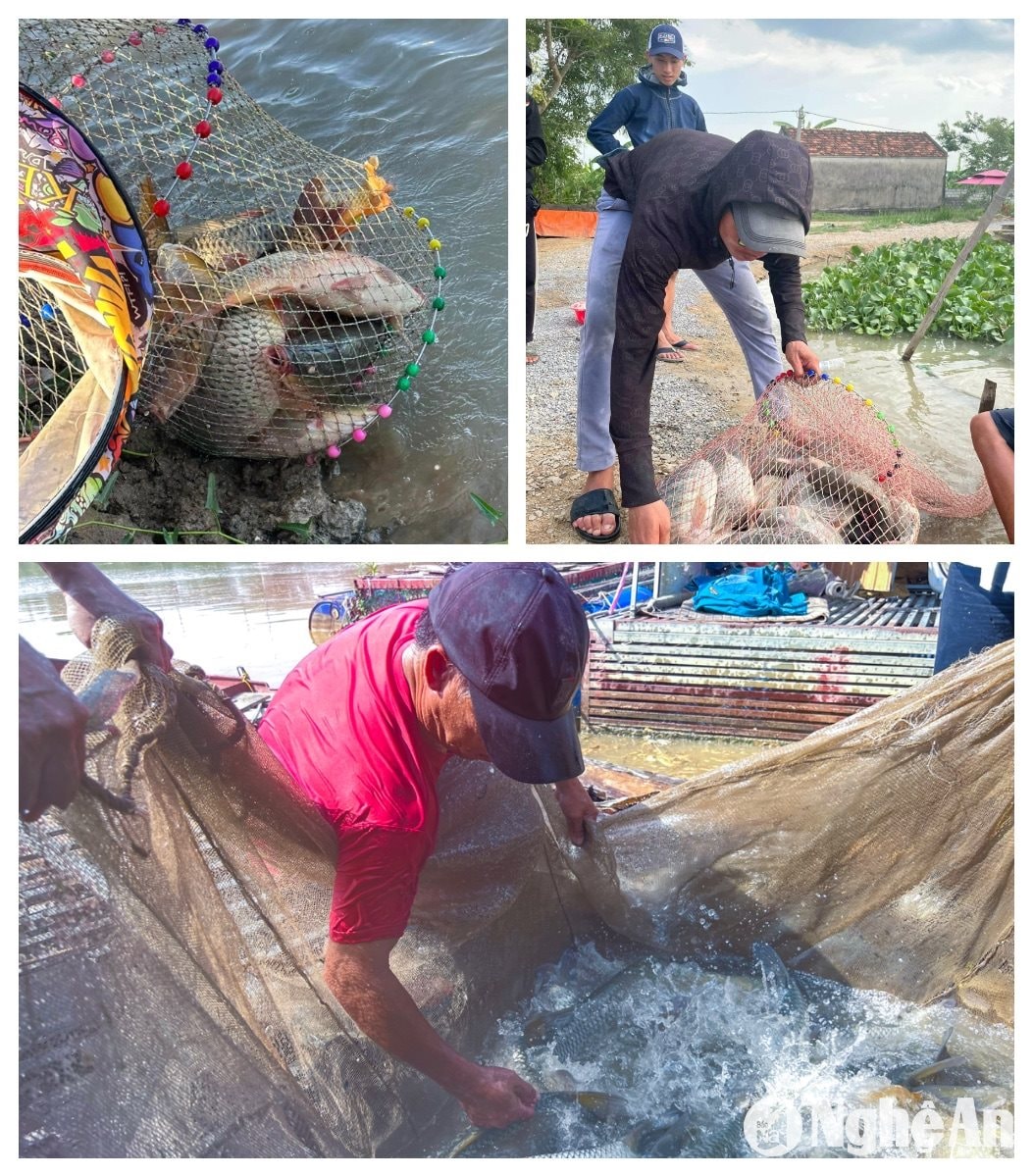
Before the storm season, farmers harvested fish; reduced density; when there was news of a storm, they took measures to secure the cages; anchored the rafts in a sheltered place; moved fish into cages close to the floating house, and moved large, valuable fish into home ponds...

